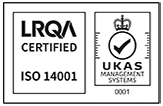
There’s a waste crisis in the UK. As a nation, we need to reduce consumption, increase recycling, turn waste into energy, and embrace a circular economy. Another contentious point in the waste sector is food waste.
How much food does the UK waste?
WRAP, the Waste and Resources Action Programme, say that 6.5 million tonnes are wasted by UK households annually – equating to 18% of all the food we buy. But the food that households waste, while hugely problematic, is just part of the issue. Food waste happens across the supply chain from agriculture to food manufacturing, food distribution, retail, and catering and hospitality. Take food waste in restaurants: the UK’s hospitality and food services industry produces 1 million tonnes of food waste every year. And 240,000 tonnes of food is wasted by UK supermarkets every year.
Why does food waste matter?
- There is food poverty in the UK. 8.4 million people in the UK struggle to afford to eat. Figures from the United Nations show that in the UK, 4.5% of people have gone a full day without anything to eat. When 250,000 tonnes of the food that goes to waste each year is edible (enough for 650 million meals) the imbalances are alarming.
- It’s bad for climate change. If global food waste were a country, it would be the third large emitter of greenhouse gases. Removing, treating and dumping food releases methane and carbon dioxide. If we stopped throwing away food, it would reduce carbon dioxide to the equivalent of taking over a quarter of cars off the road.
- Landfill capacity is in terminal decline. Simply put, there isn’t room for food waste in the UK landfill system. The UK Government is aiming to eliminate food waste to landfill by 2030 by converting food waste to energy through Anaerobic Digestion facilities (a food version of our Energy from Waste facility).
- It wastes money. The Love Food Hate Waste campaign says that the average family of four can save just over £60 a month by reducing their food waste. But it’s not just that – we pay for food that we don’t eat, then pay local councils to take it away and process it.
- The future of food production. We need to change our mindset about food waste. By 2025, climate change will affect food supply chain resilience. It will impact food safety, raw material availability and food quality. For example, by 2060, half of the current global growing areas for bananas will be unsuitable. Warming temperatures mean that certain nectarine growing regions will no longer provide enough ‘chill hours’ to set fruit. And rising temperatures are helping bluetongue virus, a sheep disease, spread into northern Europe.
How can food waste be reduced?
- Reduce household food waste. When it comes to households, there are easy ways to reduce food waste such as being sensible with leftovers, freezing more food, checking use-by dates, planning meals better and measuring portions.
- Changing policy. In agriculture, partly through unfair contractual practices, 2.5 million tonnes of food are wasted. The National Farmers Union director of policy said, “We welcomed a recommendation from the Environment, Food and Rural Affairs Committee that supermarkets should relax rules and look to ‘normalise’ foods that may have slightly different colours, shapes or sizes”. So, you may see ‘wonkier’ veg in supermarkets than in the past – and that’s a good thing. Furthermore, crop forecasting and matching supply with demand more accurately will help reduce food waste.
- Recycle more. In hospitality, ReFood helps companies such as QHotels divert 100% of food waste to recycling.
- Redistributing surplus. Edible surplus food in the supply chain caused by overproduction, labelling errors or short shelf-lives, should be redistributed. WRAP launched a food and drink material hierarchy that outlines how surplus food should be redistributed.
There’s some good news too
The New Food Waste Horizons Report showed that the UK is making progress in the reduction of food waste, with a drop from 14m tonnes to 10m tonnes over five years. Between 2015 and 2018, surplus food redistribution meant that the equivalent of 133 million meals was redistributed.
The Courtauld Commitment, an ambitious voluntary agreement looks at solutions and technologies within the UK grocery sector. Successes to date include Cadbury, Mars and Nestle achieving significant reductions in Easter egg packaging, and the Co-operative Food has introduced food storage tips on their fresh produce bags.
Contact us today to find out more about Rabbit Group’s recycling facilities. Reach us on 01903 762020 or email info@rabbitgroup.co.uk.




